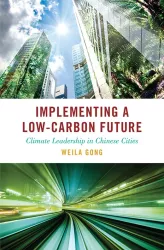Abstract
This paper seeks to explore the potential of sectoral approaches as a post-Kyoto framework.
The shared understanding of sectoral approaches in the academic community can be outlined as follows:
- Sectoral approaches can potentially engage developing countries in mitigation actions, which would be an accomplishment unachieved by the Kyoto Protocol, and determine politically acceptable national targets anddomestic allowance allocations based on the analysis of reduction potentials from technological perspectives.
- Sectoral approaches are inherently at a disadvantage compared to the Kyoto-type top-down approach with flexibility mechanisms in terms of cost effectiveness and environmental effectiveness.
- Sectoral approach-based negotiations will be substantially complex, encompassing data collection issues and multiple sector-specific negotiation processes. Therefore, they are not cost-effective enough to constitute an international framework and can only be complementary or additional to the Protocol.
Given these drawbacks, this paper will propose the Policy-Based Sectoral Approach, under which sectoral approaches would be employed to establish national emission targets and governments would internationally pledge the implementation of policies and measures to achieve the targets.
Under this approach, individual sectors would be categorized according to their features into three groups of sectors in negotiations. The first group of sectors would comprise energy-intensive industries that are exposed to international trade and leakage issues (Group I). The second group of sectors would include sectors that are basically domestic, such as electricity and road transport, for which benchmarks (generation efficiency, vehicle fuel efficiency, etc) and best practices can be relatively easily identified, but which are susceptible to resource availability, geographic and natural factors and domestic policies and measures (renewables introduction rate, traffic measures, etc.), and thus need to be unilaterally adjusted with government policies and measures (Group II). The third group of sectors would be composed mainly of the household and commercial sectors, or sectors that encompass a wide range of technologies, thus complicating indicator-setting and international comparisonii of indicators (Group III). In all groups of sectors, it is preferred that technical experts participate from industrial and academic circles to provide technological insight on benchmarking and calculating efficiency indicators and to promote negotiations. Through this process, the generation of hot air can be avoided to the maximum extent.
In addition to the basic structure, the paper will also discuss how to proceed with negotiations and what incentives would encourage developing countries to participate and how to ensure cost effectiveness.
Sawa, Akihiro. “A Sectoral Approach as an Option for a Post-Kyoto Framework.” Harvard Project on Climate Agreements, December 2008



